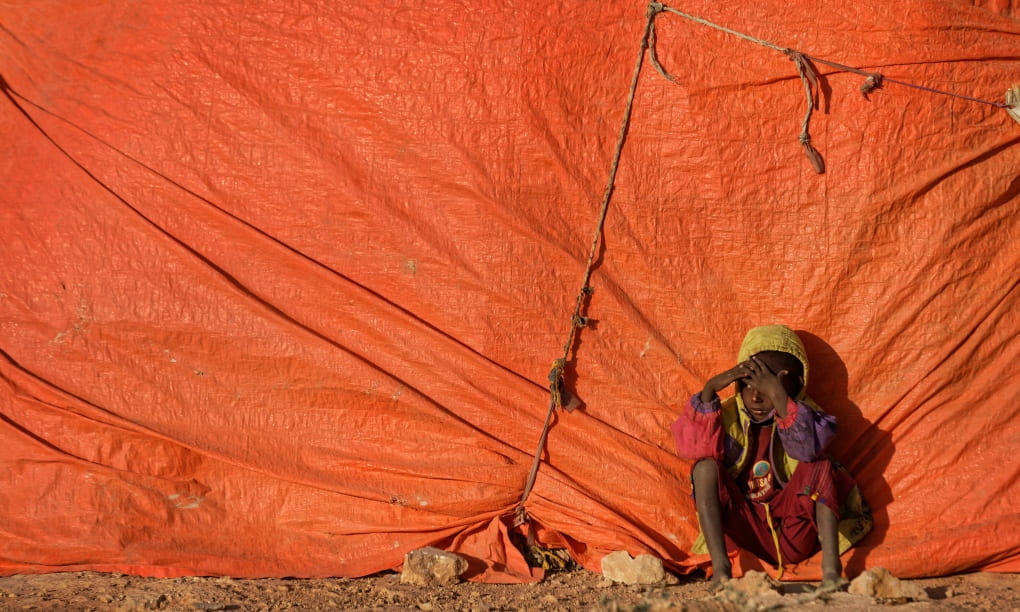The ‘material support’ statute, 18 U.S.C. § 2339B,[1] has been a crucial tool in counterterrorism efforts in the United States since its inception.[2] Notwithstanding its benefits, the broad interpretation of “material support” has complicated and hindered humanitarian aid and peacebuilding efforts overseas.[3] Accordingly, Congress should amend the definition of material support to be in line with its legislative intent and eliminate policy that excludes direct, non-financial, on-the-ground humanitarian aid and peacebuilding from the scope of prosecution, particularly where the actor is a government official, agent, or organization. Alternatively, the Department of Justice should implement a policy to such effect. Additionally, entities providing this support should work with the Department of Justice and the Department of State to create internal policies and training programs to avoid crossing the line.
In the United States, there is no crime for “being a terrorist” or “thinking terrorist thoughts,” as this would undermine key constitutional protections as well as jurisprudence that dictates that persons in the United States cannot be prosecuted for their thoughts alone. Accordingly, the U.S. criminal justice system focuses on definable acts—and counter-terrorism enforcement is no exception to this approach.
Pursuant to 8 U.S.C. § 1189(a)(1), the Secretary of State, in consultation with the Attorney General and the Secretary of the Treasury, may designate an entity as a foreign terrorist organization (“FTO”) if three elements are met: (1) the organization is foreign, (2) the organization engages in terrorist activity (as defined by statute), and (3) the terrorist activity threatens the security of U.S. nationals or the national security (national defense, foreign relations, or economic interests) of the United States.[4] If the Secretary of State decides that an organization meets these conditions, he or she may add it to the State Department’s FTO list by informing Congress and publishing a notice to that effect in the Federal Register.[5]
An FTO designation provides the federal government with many unique avenues for preventing and combating terrorist activity by members and supporters—one of the most significant of these avenues being the criminalization of providing material support under 18 U.S.C. § 2339B. To be found guilty under § 2339B(a), the defendant must must knowingly attempt to provide, conspire to provide, or provide material support—such as funds, legal advice, expert training on how to promote nonviolent solutions and peace, or medical services—to an FTO.[6] In addition to criminal liability, § 2339B(a)(2) affords civil liability to financial institutions that fail to seize funds in which an FTO, “or its agent,” has an interest.
The material support framework is strategically over-inclusive, where the prohibited acts “are based on the recognition of how terrorists behave, even if the resulting prohibitions reach conduct that is not dangerous per se.”[7] In fact, in Holder v. Humanitarian Law Project, the U.S. Supreme Court suggested that virtually anything can constitute material support or resources to an FTO, other than mere membership/association, independent advocacy, and those exceptions carved out by statute (i.e. medicine and religious materials).[8]
To avoid criminal or civil liability under § 2339B, the Secretary of State, with the concurrence of the Attorney General, may approve exemptions for humanitarian aid and peacebuilding in the form of “training,” “personnel,” and “expert advice or assistance” in instances where aid will not be used to carry out terrorist activity.[9] However, the Secretary of State has not approved a humanitarian aid exemption in “more than twenty years since [the section’s] enactment.”[10]
Accordingly, such a broad interpretation of “material support and resources” has adversely affected, or “chill[ed],” overseas humanitarian aid and peacebuilding,[11] as humanitarian aid and peacebuilding organizations fear the legal and reputational consequences resulting from helping an individual with ties to an FTO.[12]
The broad interpretation of material support and resources becomes particularly problematic where the FTO is the de facto or de jure government of a territory facing a disaster.[13] For instance, when southeast Asia was shaken by a tsunami in 2004, “aid agencies could not effectively operate in northeastern Sri Lanka for fear of prosecution for interacting with the Liberation Tigers of Tamil Eelam (LTTE), a separatist group that sought the creation of an independent Tamil state” and was designated as an FTO.[14]
Even where the U.S. government is involved, the broad interpretation of § 2339B creates “potential criminal liability for U.S. citizens to engage in back-channel communications in order to bring conflicting groups to the table in an official peace process, the logistics of which would involve too many concrete communications not to make those actions proscribed.”[15] However, as the now-repealed humanitarian aid exception of § 2339A(a)[16] shows, Congress did not originally intend to create criminal or civil liability where material support took the form of humanitarian assistance to persons not directly involved in terrorist activity.[17] There are justified, practical reasons to repeal this language, however what took its place is incomplete. But, where the federal government’s own actions could be prosecuted under this interpretation, one raises an eyebrow. Accordingly, Congress should step in or the Department of Justice should step up.
* Amy Collins, J.D., expected May 2021, The George Washington University Law School. I would like to thank Professor Jeff Breinholt for inspiring this post during my time as a student in Problems in Trying Terrorists, even if he did not know it at the time.
A small excerpt of the language in this article was originally published in Ms. Collins’ post: If the Shoe Fits: Designating Foreign White Supremacy Extremist Groups, WAR ON THE ROCKS (Feb. 4, 2020), https://warontherocks.com/2020/02/if-the-shoe-fits-designating-foreign-white-supremacy-extremist-groups/.
[1] See 18 U.S.C. § 2339B (2018).
[2] Jeff Breinholt, Material Support: An Indispensable Counterterrorism Tool Turns 20, WAR ON THE ROCKS (Apr. 19, 2016), https://warontherocks.com/2016/04/material-support-an-indispensable-counterterrorism-tool-turns-20/.
[3] See 18 U.S.C. § 2339A(b)(1)-(3) (defining material support, training, and expert advice or assistance for purposes of 18 U.S.C.S. § 2339B).
[4] See 8 U.S.C. § 1189(a)(1) (2018); 8 U.S.C. § 1189(d)(4) (2018).
[5] See 8 U.S.C. § 1189(a)(2)(A) (2018).
[6] See 18 U.S.C. § 2339B(a) (2018); Holder v. Humanitarian Law Project, 561 U.S. 1, 29 (2010); United States v. Farhane, 634 F.3d 127 (2d Cir. 2011); United States v. Sabir, No. S4 05 CR. 673 (LAP), 2007 WL 1373184, at *1 (S.D.N.Y. May 10, 2007).
[7] Jeffrey Breinholt, The Revolution in Substantive Terrorism Criminal Law: ‘Material Support’ and Its Philosophical Underpinnings, in THE LAW OF COUNTERTERRORISM 91, 98 (Lynne K. Zusman ed., ABA Book Publishing, 2011).
[8] See Humanitarian Law Project, 561 U.S. at 29.
[9] 18 U.S.C. § 2339B(j) (2018).
[10] Jordan E. Helton, Comment, Construction of a Terrorist Under the Material Support Statute, 18 U.S.C. § 2339B, 67 AM. U. L. REV. 553, 567 (2018); Kay Guinane et. al., Safeguarding Humanitarianism in Armed Conflict: A Call for Reconciling International Legal Obligations and Counterterrorism Measures in the United States, Charity & Sec. Network, 1, 18 (2012), http://www.charityandsecurity.org/sites/default/files/Safeguarding%20Humanitarianism%20Final.pdf; Kate Mackintosh & Patrick Duplat, Study of the Impact of Donor Counter-Terrorism Measures on Principled Humanitarian Action 1, 80 (July 2013), https://www.unocha.org/sites/unocha/files/CounterTerrorism_Study_Full_Report.pdf (stating “good faith efforts to deliver food to people in need will not risk prosecution”); Press Release, U.S. Dept. of State, Background Briefing on Somalia and Delivery of Humanitarian Assistance (Aug. 2, 2011), https://2009-2017.state.gov/p/af/rls/spbr/2011/169479.htm.
[11] See Sam Adelsberg et al., Article, The Chilling Effect of the “Material Support” Law on Humanitarian Aid: Causes, Consequences, and Proposed Reforms, 4 HARV. NAT’L SEC. J. 282, 282–83, 293 (2013) (detailing the “chilling effects” the material support statutes have had on humanitarian aid and peacekeeping overseas, including leading some organizations to reconsider providing humanitarian aid); Stephanie Schwartz, When Is International Peacekeeping Illegal? Implications of the 2010 Supreme Court Decision in Humanitarian Law Project, U.S.I.P. PEACE BRIEF (Nov. 3, 2010), https://www.usip.org/sites/default/files/resources/PB%2065%20-%20When%20is%20International%20Peacemaking%20Illegal.pdf; Press Release, American Civil Liberties Union, Supreme Court Rules “Material Support” Law Can Stand, (June 21, 2010), https://www.aclu.org/press-releases/supreme-court-rules-material-support-law-can-stand.
[12] Mackintosh & Duplat, supra note 10; Guinane, supra note 10, at 55–56 (explaining that the severe penalties for providing aid to FTOs dissuade aid organizations in certain contexts); Michael Price et al., ‘Material Support’: U.S. Anti-Terrorism Law Threatens Human Rights and Academic Freedom, 28 ANTHROPOLOGY TODAY 3, 3-4 (2012), https://www.maxwell.syr.edu/uploadedFiles/parcc/Publications/Rubinstein%20Article–Material%20Support%20%282%29.pdf.
[13] Helton, supra note 10, at 568.
[14] Id.
[15] Schwartz, supra note 11 at 4.
[16] Antiterrorism and Effective Death Penalty Act of 1996, Pub. L. No. 104-132, § 323, 110 Stat. 1214, 1255 (codified as amended at 18 U.S.C. § 2339A (2018)).
[17] See Humanitarian Law Project, 561 U.S. at 29; see also, Aiding Terrorists: An Examination of the Material Support Statute: Hearing Before the S. Comm. on the Judiciary, 108th Cong. (2004), https://www.govinfo.gov/content/pkg/CHRG-108shrg95100/html/CHRG-108shrg95100.htm.
Images are credited to Ben Curtis, Associated Press & Thomas Mukoya, Reuters respectively.


